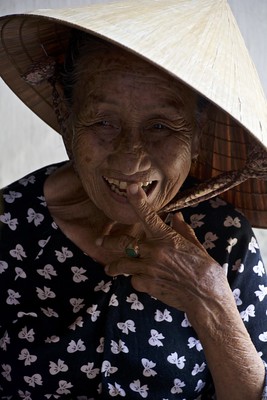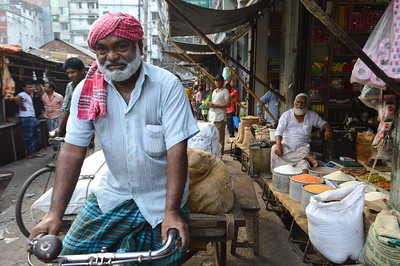In this statement on behalf of the Oral History Collective, Graham Smith, Professor of Oral History at Newcastle outlines some of the challenges and possible responses that oral historians face during the COVID-19 crisis. He argues that oral historians need to go beyond the technical challenges of remote working and think about the political crisis arising from the COVID-19 pandemic. In doing so, he warns against oral historians supporting stereotypical and dangerous attitudes to older people, and outlines the Collective’s local and international strategy.
Graham would like to thank Oral History Unit colleagues for their early input and Collective members who commented on the draft. Graham notes: ‘Any errors or mistakes are his alone’.
Response from the Oral History Unit and Collective
Reviewing the initial responses to the current emergency by oral historians internationally has been revealing. Some are exploring how to continue existing projects by recording interviews remotely. Others have turned to contemporary collecting following the US ‘crisis oral history’ model.[1]
In addition to recording activity, there are several technical guidelines issued for oral historians working during the COVID-19 pandemic. One of the most useful has been produced by the British Library’s oral history team through the Oral History Society.[2]
We believe that there are larger issues that we face in a crisis that is not simply medical but is fundamentally challenging all aspects of our lives whether social, cultural, political or economic. We are living through an extraordinary time. However, while the pandemic affects us all, there are clearly some groups that will be hardest hit while others will be relatively cushioned from the worst of the effects. The crisis both exposes the already precarious to further risks while adding many more to a category some might once have described as ‘vulnerable’.
Older people and the emergency
We are especially worried about the expressed perceptions and treatment of older people and ageing more generally. The COVID-19 emergency is exposing pre-existing ageist and ableist attitudes. Especially concerning is the emerging practices that decide who lives and who dies by the simple application of chronological age. As the British Society of Gerontology, in calling for an evidence-based approach, notes, ‘not all people over the age of 70 are vulnerable, nor all those under 70 resilient’.[3] However, older people are being put at risk by simplistic stereotyping.
In this context, it is remarkable how little has been said so far by oral historians about either older people, as a highly diverse population, or the underlying social inequalities that disasters exacerbate. This is particularly troubling given that oral historians were once active participants in a broad alliance that was critical of ageism and age labelling.[4] We, therefore, do not think it particularly useful to conceive older people as the ‘vulnerable’ ‘elderly’. It may well be that ‘Oral history interviews often take place towards the end of an interviewee’s life’.[5] However, formulating oral history in this way is especially insensitive in the current circumstances, playing into eugenic beliefs about the relative value of older people at a time when the basic rights of this group are in danger of being diminished and even ignored
What are we planning?
In relation to the issues raised above, we are taking a pragmatic two-pronged approach that is based on core oral history practices. The first is to disseminate our research in new and creative ways. We are currently producing a series of podcasts and exploring how we can link these to online reminiscence groups. In doing so, we recognise the inequalities in digital provision and are seeking new partners to address this issue.
Our podcasts will also feature roundtable conversations and interviews we have been conducting with leading international oral historians. Our aim here is to offer points of discussion and develop a critical oral history that will address key questions of theory and practice.
Secondly, we want to extend our foodbank research with the mutual aid groups that have grown across our region and beyond. The situation of food poverty that we discussed in a recent article has been transformed.[6] A million new universal credit claimants will increase the significance of and need for, foodbanks and social solidarity in Britain. It is also likely that the historical discourse of deserved and undeserved poverty will be shaken to its core.
We are in the process of producing a report that addresses current food poverty and policy contexts within a historical perspective. However, the emergency has meant a lack of access to basic supplies for people who can’t get outside their homes or who don’t have digital connections. Fear, especially generated by age-specific alarm, means weighing up the risks of infection when shopping for food and other basics against the risks of hunger. Hence the significance of the mutual aid initiatives and our intention to expand our research.
We will also continue developing our theme of ‘work and after’. Here we are interested in the future of work, worklessness and intergenerational understandings of the meaning of employment. This seems particularly apt at a time when the world of labour has been turned upside down with workers we have taken for granted now key to everyone’s survival. Mutual aid may yet become a measure of utility.
While members of the Oral History Unit and Collective are willing to support contemporary collecting initiatives where we can, we want to continue to exploit oral history’s strengths. The power of oral history is to be found in deep listening, connecting with others, learning about the past and valuing memory. However, oral history is also capable of helping co-develop social critique and commentary, challenging public and policy discourse if we so choose. These interviews will, therefore, explore the lives and hopes of activists and not simply their observations on the current emergency.
Our international research

We will continue to operate internationally. Our Living Deltas Hub project is now in a new phase and we will provide an update shortly. Our partners in India, Bangladesh and Vietnam are facing ever more challenging times. There is the temptation to suspend activity in this area, but this would be the wrong thing to do, especially given that we can drive our co-produced research forward through continuing to develop new methods and concepts of participatory practice. Despite the seriousness of the pandemic, environmental collapse, especially in the world’s delta regions, continues to be the existential threat our planet faces. We will, therefore, continue to support, albeit remotely, our international partners’ crucial work in tackling climate change for as long as we can.

In closing, our blog platform, The Lug, will be updated more frequently to highlight the work we’ve been conducting and our thoughts on during times of crisis. Look out also for our Twitter initiatives @NCL_OralHistory.
[1] See Mark Cave and Stephen M. Sloan, eds., Listening on the Edge: Oral History in the Aftermath of Crisis (New York: OUP USA, 2014). One of the most ambitious of these projects is the COVID-19 Oral History Project, IUPUI Arts & Humanities Institute, https://sites.google.com/iu.edu/covid-19oralhistoryproject (last accessed, 5 April 2020).
[2] Morgan, et al. ‘Advice on remote oral history interviewing during the COVID-19 pandemic’, Version 4 (1 April 2020), British Library. These will be posted at https://www.ohs.org.uk/advice/
[3] Tom Scharf er al, ‘COVID-19: Statement from the President and Members of the National Executive Committee of the British Society of Gerontology’ https://ageingissues.wordpress.com/2020/03/21/covid-19-statement-from-the-president-and-members-of-the-national-executive-committee-of-the-british-society-of-gerontology/ (last accessed, 6 April 2020).
[4] See the work of Joanna Bornat in this area. For example, Joanna Bornat, ed., Reminiscence Reviewed: Evaluations, Achievements, Perspectives (Open University Press, 1994).
[5] Mogan, et al, 2020, p. 3.
[6] Jack Hepworth et al., ‘“I Was Not Aware of the Hardship” Foodbank Histories from North-East England Jack Hepworth, Alison Atkinson-Phillips, Graham Smith, Silvie Fisch 1-25’, Public History Review 26 (2019): 1–25.
